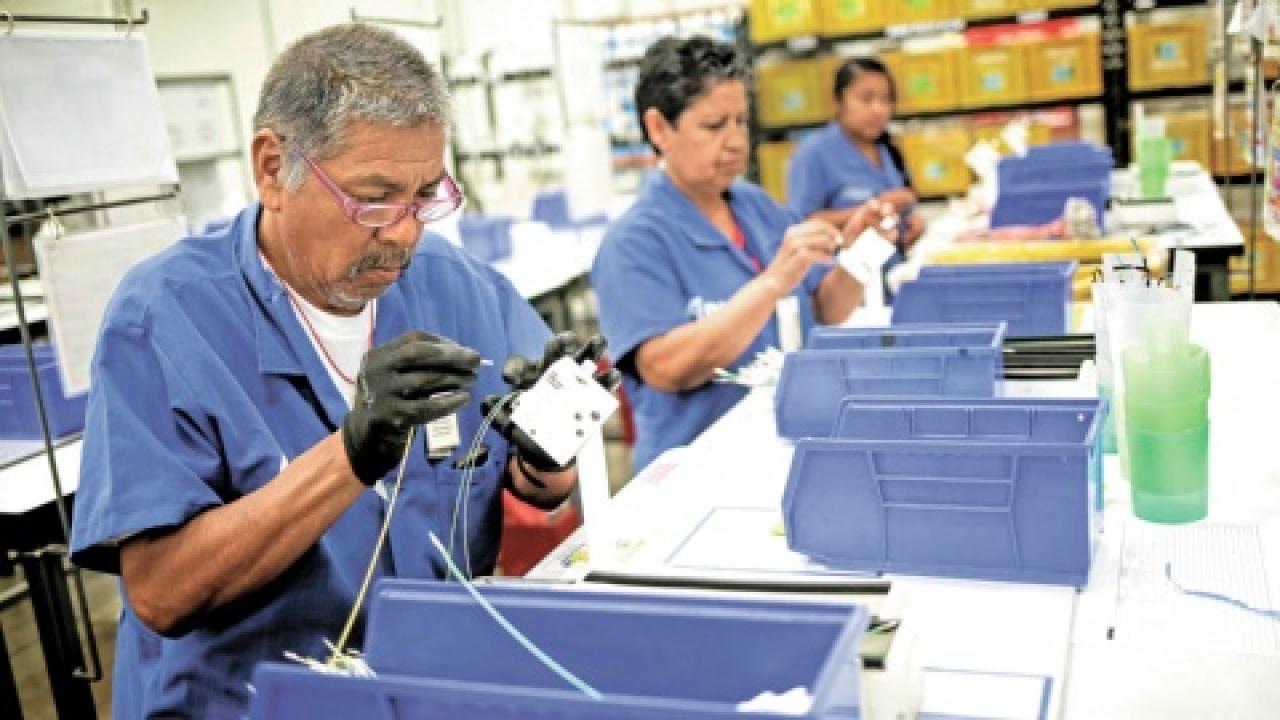
Marcela Calderón, partner of Social Security and Remuneration Tax Services at KPMG Mexico, mentions that forced labor and child labor have been persistent problems in the Aztec country, and the measures promoted by the T-MEC are steps to address these challenges.
Within the framework of the T-MEC, which this month turned four years old, Mexico committed to eradicating forced labor after a demand for labor equality in the treaty negotiations.
Pressure from the United States has influenced labor reforms like never before in the last six years, and the classification of long working hours as a crime of labor exploitation reinforces these commitments.
Marcela Calderón, partner of Social Security and Remuneration Tax Services at KPMG Mexico, mentions that forced labor and child labor have been persistent problems in the nation, and the measures promoted by the T-MEC are steps to address these challenges.
The labor agenda with reforms and public policies, such as the increase in the minimum wage, the regulation of subcontracting ( outsourcing ) and sanctions for working hours exceeding the law, are examples of how Mexico is responding to these international obligations to strengthen the protection of rights, reducing informality and abusive practices.
In this sense, the specialist points out that with the trade agreement a labor chapter was established - annexes 23 and 23-A - to guarantee the protection of labor rights, which contemplates the elimination of forced labor.
Annexes 23 and 23-A obligate Mexico to establish regulations that promote decent work, which includes: social security, non-discrimination, and better wages. In addition, they address the eradication of forced and child labor practices.
“It is a criminal law that includes labor exploitation. In the country it has generated some questions due to its forecasts, especially because it contemplates issues such as extraordinary working hours outside the legal margins,” adds Marcela Calderón.
In June, the modifications to the General Law to Prevent, Punish and Eradicate Crimes related to Human Trafficking and for the Protection and Assistance to Victims of these Crimes came into force.
With this reform, work hours that exceed legal limits can now be considered labor exploitation.
BACKGROUND OF THE ERADICATION OF FORCED LABOR
In 2012, the concept of decent work was incorporated into the Federal Labor Law (LFT) with the purpose of recognizing and guaranteeing adequate conditions in all employment relationships.
That was a watershed moment for the wave of changes that followed. “Annexes 23 and 23-A have a focus that strengthens effective regulation on labor practice issues,” says Marcela Calderón.
According to the Government of Mexico, the objective of recognizing decent work as a right was “to ensure that labor standards provide that workers have a job with benefits and access to social security.”
Jimena Sánchez Argoytia, founding partner of Employment Legal Aid, explains that the history of the reform that recognizes long hours as labor exploitation dates back to 1930, when the International Organization (ILO) celebrated an agreement to eliminate forced labor, which was ratified by Mexico since then.
“Almost 100 years after this ruling, as part of the measures adopted, we seek to train and protect workers from excessive working time. A penalty is established for excessive working hours, according to the Federal Labor Law. It is key to avoid unjustified overtime,” added Argoytia.
The commitments made in the labor chapter of the T-MEC have impacted labor rights in Mexico, from a historic increase in the minimum wage to the outsourcing reform, the Aztec country has had to adjust its legislation to align with these standards.
“For example, the 2021 subcontracting reform sought to formalize employment and ensure that workers have social security. Equality protocols and workplace harassment reporting lines have also been implemented, strengthening the protection of labor rights,” explains Marcela Calderón.
IMPACT ON COMPANIES
For the specialist, companies in Mexico have to reconfigure their practices, especially in matters of subcontracting and overtime, since after the T-MEC, there is greater surveillance in the formality of contracting and in the distribution of working hours.
“The sanctions have led companies to evaluate and adjust their control mechanisms to comply with the new regulations.”
One of the main challenges of the labor market is the nature of certain activities that require extended hours, so strengthening adequate controls and guaranteeing workers' rest are the main challenges.
Marcela Calderón emphasizes that it is essential that legal margins are respected and fair working conditions are offered, preventing overtime from becoming an abusive practice.
“I hope that the legislation continues to strengthen the legal framework and that the authorities in charge of inspections identify and address labor problems effectively. Social dialogue and an in-depth analysis of working conditions in companies will be key to continue moving forward,” adds Calderón.
Therefore, the USMCA provisions can be seen as a response to Mexico's need to align its labor legislation with international standards and rectify historical deficiencies in the protection of workers' rights.









